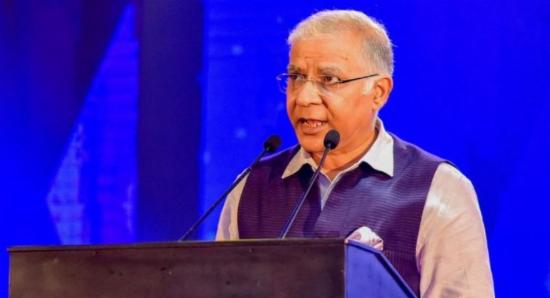.webp)
The ripple effect of US pulling out of UNHRC
Colombo (News1st) - US Ambassador to the United Nations Nikki Haley announced the United States is withdrawing from the UN Human Rights Council, accusing the body of bias against US ally Israel and a failure to hold human rights abusers accountable.
Announcing the decision alongside US Secretary of State Mike Pompeo to quit the council, Haley described the council as a "hypocritical and self-serving organisation" that displayed "unending hostility towards Israel".
Based in Geneva, the Human Rights Council which was formed in 2006 is a body of 47 member states within the United Nations tasked with upholding human rights. But activists said the US move could hurt efforts to monitor and address human rights abuses around the world.
While Israel praised the decision, some countries and diplomats were quick to express disappointment about the US withdrawal. The UNHRC's current president, Slovenian ambassador Vojislav Suc, said the body was the only one "responding to human rights issues and situations worldwide".
Stéphane Dujarric, the spokesman for UN Secretary-General António Guterres said "The Secretary-General would have much preferred for the United States to remain in the Human Rights Council."
UN High Commissioner for Human Rights, Prince Zeid Ra'ad Al Hussein called the US withdrawal "disappointing, if not really surprising, news".
The resolution on Sri Lanka at the UN Human Rights Council concerning alleged human rights violations was passed without a vote in Geneva in March last year. The resolution was submitted by the United States with Montenegro, the Republic of Macedonia, United Kingdom and Northern Ireland the main sponsors and Sri Lanka a co-sponsor.
Dr. Dayan Jayathilaka, a former Sri Lankan Permanent Representative to the UN in Geneva believes that the United States pulling out of the UNHRC would not have any effect on Sri Lanka. Speaking to News1st he noted that the 2015 resolution sponsored by the United States is firmly in place and noted that the only way out for Sri Lanka is to muster enough support to either revise or replace the resolution.
Dr. Jayathilaka also pointed out that the driving force for resolutions on Sri Lanka in Geneva has always been the United Kingdom and noted that there is no shortcut for Sri Lanka.
However, Cabinet spokesperson Dr. Rajitha Senaratne believes that there is an advantage for Sri Lanka. He noted that Sri Lanka is in it's current predicament because then-President Mahinda Rajapaksa promised to implement the first resolution introduced on Sri Lanka before backtracking.
Senaratne also said that he believes that as a country Sri Lanka should abide by conventions and resolutions that they have signed on to or else move away from them completely.
Other Articles
Featured News





.png )





























.gif)